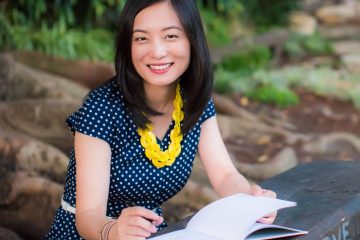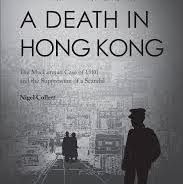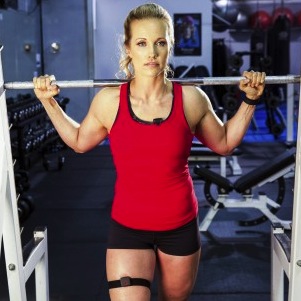
How to maintain work-life balance and safeguard your health; 4 tips from a successful Chinese daughter
— March 24, 2023‘My mother was a typical Asian parent. She lost her dream because of the Cultural Revolution,’ says Yu Dan Shi. ‘I became the product of high expectations’

In 2008, Yu Dan Shi was 32 and a successful marketing officer for a global tech company. She had left her native Shanghai over a decade previously to do her MBA at Sydney University and stayed on in Australia to build a career, marry a classmate and have two children.
Life was good, if stressful.
“Of course, I was stressed out, I was working full-time and had two kids. I was sure I wasn’t the only one who was stressed out, I didn’t think there was anything wrong with me,” says Shi, director of behavioural science at CoachHub APAC.
After a client meeting, she was in a taxi back to her office when she felt an intense stabbing pain on her right side. She asked to go to the hospital before she blacked out.
For the past half year, she had been getting sick quite easily, catching colds and experiencing chest pain – which a doctor put down to a panic attack. But she had ignored the pain on her right side, making excuses for it and hoping it would go away.
“One night, the pain was so bad I was curled up on the floor in my bedroom. It was Chinese New Year and we’d had a big meal, I thought it must be the food. I was coming up with all sorts of excuses,” she says.
Doctors discovered that her gallbladder was full of stones and highly infected. Had it burst, it would have had life-threatening consequences. She had it removed the next day.
There was no time to explain the situation to her colleagues, parents or two daughters at home, who were four and nine at the time. As she was wheeled into the operating room she was filled with remorse.
“I was feeling so much guilt. I should have looked after myself and I hadn’t and now I was bearing the consequences and the possibility my kids might not have a mum,” says Shi.
This was not the first time her body had sent a warning signal to slow down.
She was 20 and three years into her tech career as a fresh graduate at Shanghai Technology in China – where she often worked seven days a week – when her mother noticed that her hair was turning grey. Even her parents, in their 40s, did not have grey hair.
“Go overseas because they don’t work as hard,” her mother advised, prompting her move to Australia. Still, 13 years on, her body was again trying to tell her to slow down.
Her gallbladder surgery was transformative.
“I said to myself, ‘Please let me get through this operation and come out alive and if I do, I’ll take care of myself and cherish every day,” Shi says.She was as good as her word. She did not quit her job – she still had her family and her parents to look after – but she did take a break, and then continued to work, but with a different mindset. She was now committed to taking care of herself – not just physically, but looking after her mental well-being, too.
She took up a friend’s recommendation to see an executive coach. She had always thought she was a “doer” and an extrovert and so had acted that way, but she learned her personality type is that of “the thinker”.
“A thinker needs space to think and wonder, a thinker can’t execute all the time without rest. I didn’t understand myself, so instead of saying, ‘I’ll spend two hours to do planning’, I just went into it full speed. That is why I would feel so stressed,” she says.
You may have wondered how she had started a tech career as a fresh graduate aged just 17. That was because she went to university aged 14, after her mother, a high school maths teacher, had encouraged her to study Grades 5 and 6 in the summer after her Grade 4.“ My mother was a typical Asian parent. She lost her dream because of the Cultural Revolution. Sometimes when a parent loses their dream, they expect the child to carry it on. I became the product of high expectations,” said Shi.
Although her parents had gone to university 10 years after the Cultural Revolution, they had lost their youth and that loss translated into poor living circumstances – their home was a windowless mud house and they had little money. All their hopes for success and the future were pinned on Shi, the eldest child.That plan seemed to be working. Shi’s first monthly salary as a 17-year-old at Shanghai Technology was more than her mother earned in a whole year. But she learned the hard way the pressure of driving herself hard: the subsequent chronic stress was not sustainable.
To find a better way of working, in 2009 Shi enrolled in a Master of Science in Coaching Psychology at Sydney University, and became a certified executive coach. It was more work on top of a full-time job, but she insists she enjoyed it and applied what she learned to herself.
“I even changed my diary and told my clients and colleagues, ‘I’m having a thinking day’ or ‘I’m having a doer day’. I blocked my diary based on how I perform myself, so I can preserve my energy and use less time and produce more,” she said.
In 2017, she left her corporate job to set up her own leadership coaching practice and in 2022 joined CoachHub as director of behavioural science.
Having experienced a stressful corporate environment, she is keen to show business executives that success does not have to look “tired and miserable”. Aligning your strengths and understanding your stresses allows for a sustainable and long career.
“I think most people are so busy trying to achieve the destination – we are going to study, work, be successful – all we are thinking about is how do we get there,” she said.
Her 2019 book Come Alive recounts her personal story of going from poverty to astronomical achievement, then hitting rock bottom, and finally finding joy in her work.
Shi starts each morning checking in with herself and gauging her energy levels, and working out what she needs to do to recharge.
She can now recognise if she is running low on energy; before, she would have kept going until she collapsed. She has learned how to reflect and ask questions which allow for learning and development.
Taking time to learn from your experience slows you down, but is productive, as you learn so much, she said.
Yu Dan Shi’s four principles to achieve greater balance
1. Care less
Do not care too much about titles, status or what people think of you. If you identify yourself based on these “extrinsic motivators”, then success will not lead to satisfaction. Focus on “intrinsic motivators” such as learning, growth and purpose.
2. More strength
Find out what you love doing. You might end up doing more in less time because it is your authentic strength.
3. Do less
It is not about the number of hours you put into your work. Know your peaks and troughs and work around yourself. Have a strategy to recover and re-energise to achieve a sustained high.
4. More passion
Outside your day job, do something that gives you joy. It does not need to turn into a side job; making you happy should be enough. Success and happiness are not mutually exclusive.
Original Link: SCMP









